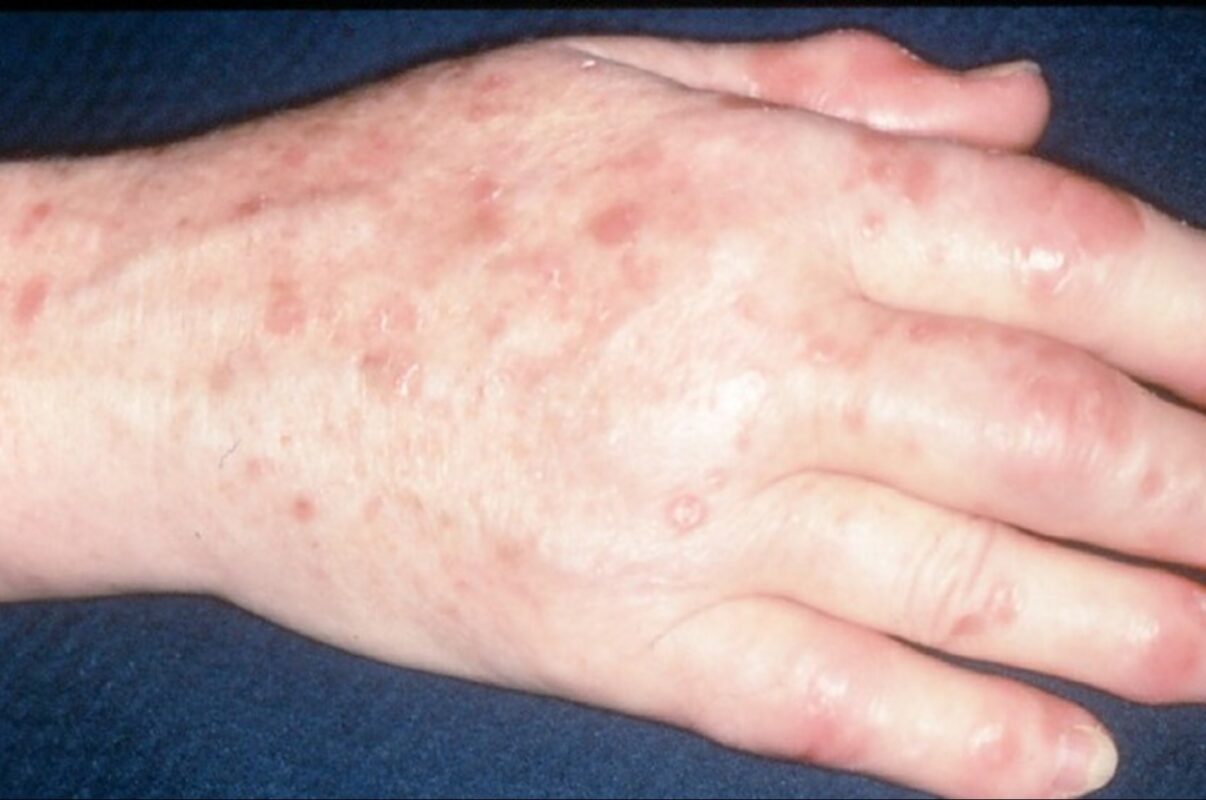Understanding Psoriatic Arthritis: Causes, Symptoms & Treatment
In the United States, there are almost 1.5 million Americans who have faced psoriatic arthritis, also known as PsA. This means that quite a large number of people in the US have experienced this chronic condition.
Psoriatic arthritis can make your joints and the area around them painful, swollen, and stiff. It often affects 3 in 10 people who already have psoriasis, a skin ailment. The red spots, flaky skin coated in silvery-like spots are the psoriasis symptoms.
Psoriatic arthritis can appear in some persons even before psoriasis does. Rarely patients with psoriatic arthritis don’t ever have any observable psoriasis patches. Fuse Infusion can help you in treating psoriatic arthritis through the new and advanced treatment of biologic infusion therapy.
What is Psoriatic Arthritis?
When a person has psoriasis, an autoimmune disease that affects the skin, psoriatic arthritis can develop as an inflammatory illness. The main signs and symptoms of psoriatic arthritis are stiff and swollen joints, which, if ignored, can be painful and have an impact on everyday living.
Of those who have psoriasis, 10 to 20 percent also have psoriatic arthritis. Although it can occur in children and adults of any age, it most frequently affects people between the ages of 30 and 50.
You might be more likely to get psoriatic arthritis if you have psoriasis. Knowing the signs of psoriatic arthritis is crucial since it is a chronic condition that worsens over time if ignored. Once diagnosed, you can begin managing and reducing your symptoms.
Both psoriatic arthritis and psoriasis are autoimmune diseases brought on by immune system dysfunction.
We are shielded from illness and infection by our immune system. However, in autoimmune diseases, the immune system misfires and assaults the body’s healthy tissues, frequently resulting in inflammation.
Spondylarthritis includes psoriatic arthritis. This is a collection of ailments that share some symptoms.
Psoriasis patients are equally as prone as the general population to develop other forms of arthritis, such as osteoarthritis or rheumatoid arthritis. These illnesses are unrelated to psoriasis.
Psoriatic Arthritis Symptoms
The most typical sign of psoriatic arthritis is warm to the touch and swollen joints. But this discomfort could also be a sign of other inflammatory conditions, like rheumatoid arthritis.
Other typical signs of psoriatic arthritis include:
- Painful and swollen joints, particularly in the toes or fingers.
- Stiffness in the joints in the morning time.
- Foot ache, particularly in the sole of your foot.
- Nail pitting, flaking, or separation.
- Neck or lower back pain.
- Worsening psoriasis symptoms
- Fatigues
Psoriasis patients may experience joint pain along with cutaneous flare-ups. A tiny percentage of people, though, may develop joint issues despite never having psoriasis-related skin issues.
Causes of Psoriatic Arthritis
Your risk of developing psoriatic arthritis may increase depending on the genes that you inherited from your parents and grandparents. The following may cause this disorder if you have genes that put you at risk for it:
- Accident or injury
- Overweight
- Infection
- Smoking
Additionally, there is an element of chance. Therefore, it might not be able to pinpoint the exact origin of your symptom.
People cannot contract psoriasis or psoriatic arthritis from one another since they are not communicable.
Stages of Psoriatic Arthritis
According to experts, no two individuals experience psoriatic arthritis in the same pattern, but still, there are some patterns that are common. The stages of psoriatic arthritis are as follows:
- Pre-Clinical PsA
- Early psoriatic arthritis
- Late-stage or advanced psoriatic arthritis
Rarely can psoriatic arthritis advance to arthritis mutilans, a disorder characterized by severe inflammation and bone loss, when it is poorly controlled by therapy.
Treatment of Psoriatic Arthritis through Biologic Infusion Therapies
Biologic infusion therapies, known as specialized treatment, target specific immune system components to lessen inflammation. If you haven’t found success with other medications, you might be able to try them.
Psoriatic arthritis is treated with two categories of biological infusion therapies: interleukin inhibitors and anti-TNF medications.
- Tumor necrosis factor (TNF), a protein, is the target of anti-TNF medications. Interleukin proteins are the focus of interleukin inhibitors.
- TNF and interleukin proteins are produced by the body’s immune system to serve as messenger cells and promote inflammation.
Reducing inflammation and avoiding bodily harm can be accomplished by blocking TNF or interleukin messengers. Biological therapy may be provided separately or together with a DMARD like methotrexate.
The anti-TNF medicines listed below can treat psoriatic arthritis:
- Adalimumab
- Etanercept
- Certolizumab pegol
- Infliximab
- Golimumab
Following are the interleukin inhibitors that can treat psoriatic arthritis:
- Ixekizumab
- Secukinumab
- Ustekinumab
The biologic infusion treatment can take up to three months to show its effects on patients.
We infused biologics into the body of an individual through biologic infusion therapy treatment. We carefully monitor our patients so that if there are any allergic signs, we can treat them immediately.
Your doctor will provide you with a rheumatoid arthritis medication dosage prescription. In case you see some signs of allergy after receiving the biologics, consult us immediately!
Contact Fuse Infusion for Psoriatic Arthritis Treatment
If your doctor has recommended biologic therapy treatment for psoriatic arthritis, we at Fuse Infusion offer you the best treatment services. We treat psoriatic arthritis through medications, which are specialized biologics, and help our patients in overcoming this chronic disease.
Each Fuse Infusion patient receives direct care and treatment from our licensed professionals throughout biological infusion therapy, providing thorough medical management.
From start to end, each patient receives individualized care. When required, on-call medical professionals are accessible.
At Fuse Infusion, we believe in offering premium-quality services to our patients. So, contact us to receive a biologic infusion today!

